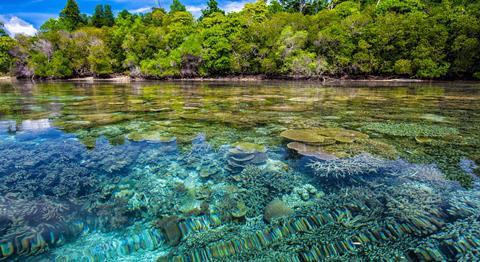Ocean degradation and climate change represent two of the most urgent environmental challenges of our time, affecting marine (macro and micro) biodiversity and ecosystem functions globally. Central to addressing these issues is the understanding and management of marine microbiomes – the complex microbial communities that connect, interact with, and affect all other organisms and the ecosystem, playing pivotal roles in marine health and resilience.
Microbial communities in marine ecosystems do more than cause or prevent disease; they are dynamic participants in biogeochemical cycling and organic decomposition, providing essential nutrients, breaking down pollutants, and enhancing organisms’ resistance to different impacts. However, pristine marine ecosystems no longer exist, even in the most remote areas, due to anthropogenic activity. These activities often lead to dysbiotic states where beneficial and neutral microbial interactions are disrupted, primarily due to shifts in seawater temperature, acidification, and oxygen levels, which favor pathogenic microbes over beneficial ones. This disruption impacts marine life directly and cascades through and across marine ecosystems, threatening foundational species like corals, seagrass, and mangroves, and the ecosystems they build or support, some of which are vital for carbon sequestration. This continuing cycle of environmental impact further exacerbates climate change challenges for both micro- and macroorganisms. The fourth global coral bleaching event currently affecting our planet exemplifies this, where some of the predictions indicate that coral reef functions could become extinct in the coming decades.
In response to these pressing issues, microbial-targeted interventions focused on microbiome restoration and rehabilitation, such as the use of probiotics and microbiome transplants, have emerged as promising solutions. These innovative, nature-based approaches aim to restore healthy microbiomes by reintroducing beneficial microbes, thus enhancing the resilience of marine organisms to environmental stresses and diseases. Therefore, healthy microbiomes can contribute to healthy organisms that ultimately support ecosystems – which, in turn, can further enhance carbon sequestration and mitigate other threats like water pollutants. This beneficial cycle is the exact opposite of what happens in times of climate change and ocean degradation.

The stewardship of microbial communities poses ecological and ethical challenges regarding the long-term impacts of such interventions. It is imperative to advocate for responsible microbiome stewardship frameworks that balance ecological traits, potential risks, and the dynamic nature of microbial communities. It is important to highlight, though, that unpredictable and dangerous pathogenic microbiome assemblages are a signature of degraded ecosystems, and that risk assessment steps must consider the potentially higher risk of inaction.
Integrating microbiome research into broader climate change mitigation strategies is also unavoidable. Microbes influence carbon and nutrient cycles, affecting greenhouse gas (GHG) emissions and organic matter decomposition. Understanding these interactions is vital for developing effective predictions and strategies to mitigate the impact of climate change on marine environments.
In conclusion, as we face the ongoing impacts of climate change and ocean degradation, marine microbiome research offers a promising frontier for developing novel and transformative conservation and restoration strategies. By harnessing the power of microbial communities, we can both minimize the threats to our oceans and mitigate the degradation of marine ecosystems. This approach requires a collaborative effort among scientists, policymakers, and environmental managers to integrate microbiome-based strategies into global environmental conservation practices and relies on our ultimate commitment to minimizing GHG emissions.
Further reading
Microbiome definition re-visited: old concepts and new challenges - Microbiome
Scientists’ warning to humanity: microorganisms and climate change - Nature Reviews Microbiology
Microbial Dysbiosis: Rethinking Disease in Marine Ecosystems - Frontiers in Microbiology
Horizon scanning the application of probiotics for wildlife -Trends in Microbiology
Rebuilding Coral Reefs: a Decadal Grand Challenge - International Coral Reef Society
NOAA confirms 4th global coral bleaching event - National Oceanic and Atmospheric Administration
Harnessing the microbiome to prevent global biodiversity loss - Nature Microbiology
The coral microbiome in sickness, in health and in a changing world - Nature Reviews Microbiology








No comments yet